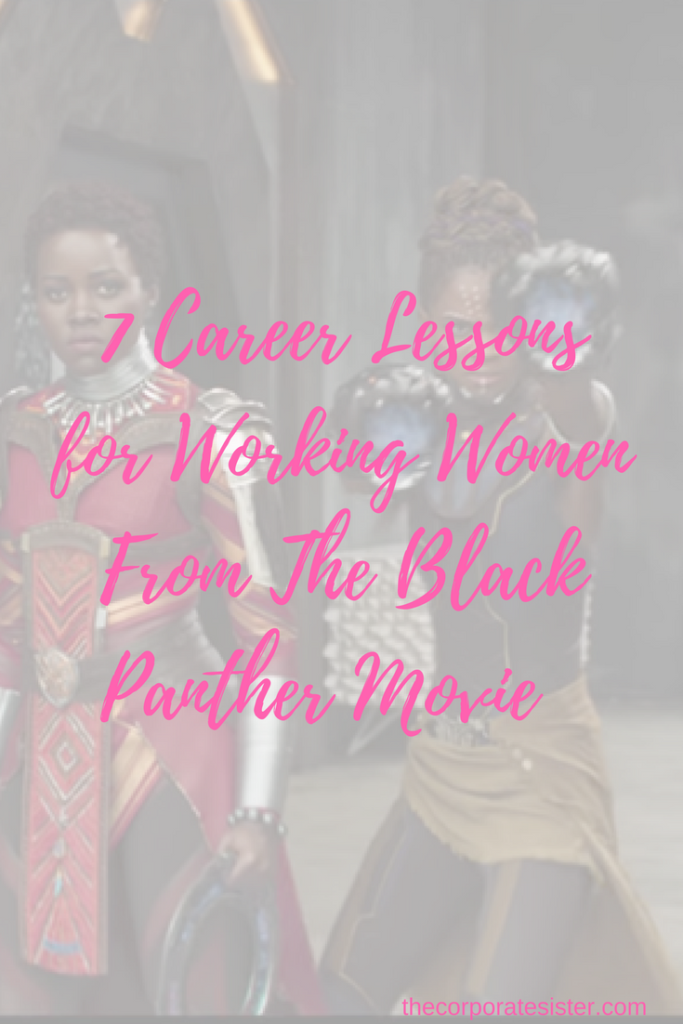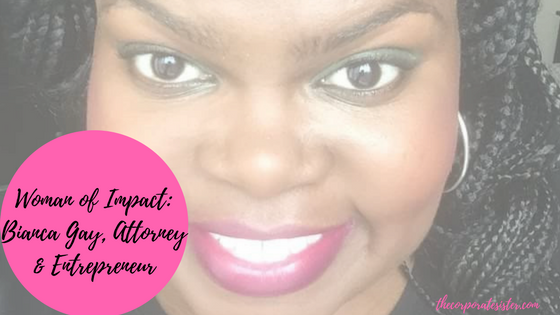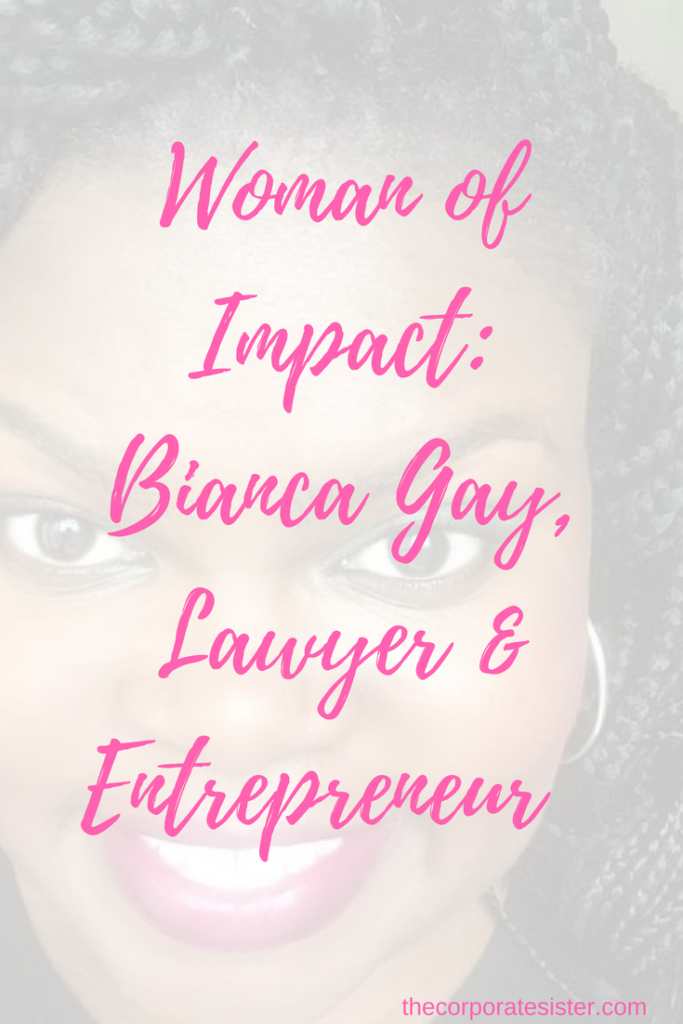
by Solange Lopes | Feb 28, 2018 | Career
 In general, women of color face numerous challenges in business. However, while many women have and are making significant strides in the business world, they still grapple with seemingly insurmountable obstacles as entrepreneurs. This is reflected in the dismal percentage of women as angel investors (less than 20%), venture capitalists (less than 10%), and in female-led startups (less than 5%).
In general, women of color face numerous challenges in business. However, while many women have and are making significant strides in the business world, they still grapple with seemingly insurmountable obstacles as entrepreneurs. This is reflected in the dismal percentage of women as angel investors (less than 20%), venture capitalists (less than 10%), and in female-led startups (less than 5%).
Although Black women entrepreneurs stand among the fastest-growing group of women-owned businesses. There are more than 1.5 million businesses owned by Black women . According to the 2016 State of Women-Owned Businesses report, eight out of every 10 businesses started since 2007 were launched by women of color.

Here are some of the harsh challenges that many, if not most, women of color entrepreneurs encounter:
-
Biases in the business world
Many women of color entrepreneurs will tell you that they have, and are still facing, a double bias due to both their race and gender. This in turn creates difficulties when it comes to obtaining funding, reaching out to potential partners, and even networking.
-
Lack of representation
Very often, women of color are the only ones in business meetings. These women are often striving alone in industries and businesses dominated by men. As such, they are often talked down to, and have to constantly prove their worth, qualifications and drive.
This is especially relevant for women of color who are just starting out and leaping into entrepreneurship. These often find the lack of representation intimidating and discouraging.
-
Networking Challenges
Networking events attended by very few women of color, if any, can also deter their them from making the right connections. It can all seem like a boys’ club that can be hard to get into. It’s precisely the lack of access to these networks, as well as not having the right tools and resources to navigate them, that can prevent perfectly viable businesses from surviving and thriving.
-
Lack of mentorship
Mentorship is a valuable resource that benefits many businesses, especially in the early stages. However, there tend to be fewer mentorship opportunities available to women entrepreneurs in general. According to Inc., forty-eight percent of female entrepreneurs lack mentors and advisors.
For women of color, the gap is even wider as a result of bias and limited networking opportunities. This is where women -focused networks such as Ellevate Network, or events like the WIN conference, can make all the difference.
-
Lack of access to capital and funding
According to this recent study by Fundera, “women entrepreneurs get offered smaller loans across every product, from the same groups”. Female entrepreneurs seeking venture capital do not seem to fare any better. Research confirms that investors actually prefer entrepreneurial pitches by attractive men.
For minority women, the chances of getting traditional sources of funding such as loans can be slim to none. This may be due in large part to both conscious and unconscious bias. As a matter of fact, according to the Minority Business Development Agency (MBDA), small business owners of color are more likely to be denied credit than other small business owners. They also tend to pay higher interest rates than non-minority owned businesses. As a result, fewer women of color entrepreneurs seek to apply for loans.
What challenges do you think women of color entrepreneurs face? Share in the comments.
To Your Success,
The Corporate Sister.
by Solange Lopes | Feb 25, 2018 | Career

Black Panther movie – Photo credit: bustle.com
There are many reasons why Black Panther is a classic, historical, boundary-breaking movie. As an African and a Black woman, seeing my children’s faces represented on the big screen as the heroes they are, showed me how important this movie is. The powerful representation of women was also a strong testimony to the importance of female leadership, especially when it comes to Black women and women of color.
One of the biggest and most impactful aspects of Black Panther was its female ensemble of women warriors and leaders. The fearless female characters played by Angela Bassett, Danai Gurira Lupita Nyong’o, and Letitia Wright demonstrated that women can not only lead, but they they can defend an empire or organization like no other. From the revolutionary spy Nakia (Lupita Nyong’o), to the army general Okoye (Danai Gurira), to Wakanda’s chief scientist and sister of the king Shuri, not to mention the Queen Mother (Angela Bassett), these women make up the very foundation of Wakanda’s society.

Most importantly, their work and undeniable leadership teach us a few precious career lessons as working women. Here are five of them I took out of the movie:
-
Be dedicated to your purpose
One thing that is evident throughout the movie is the women’s passionate dedication to their purpose. Nakia, one of Wakanda’s most trusted spies, is devoted to helping oppressed people and protecting Wakanda. Okoye, the “general”, is the head of the Dora Milaje, the army of women warriors in charge of protecting King T’Challa. She is also dedicated to Wakanda, at the risk of losing her own love W’Kabi after he decides to betray King T’Challa. Shuri, the “smartest woman in the world”, is committed to fighting for Wakanda through the power of technology. These are a few examples of the power of Purpose in the lives of the women of Wakanda.
How much more effective would we be if we, as working women, were also unwavering in our purpose? Very often, society has us believe in the obstacles to achieving our career purpose, more than in our capacity to overcome them. The women of Wakanda show us that unwavering dedication ultimately wins!
-
Don’t be afraid to communicate fearlessly
If there’s one thing that the women of Wakanda don’t do, is mince their words! From Shuri’s witty replies to Okoye’s authoritative commands, they don’t shy away from expressing their opinions. It is by standing by their principles and using their voices that they’re able to bring about change and victory.
What if, like them, we hesitated less when it came to sharing valuable knowledge and empowering opinions? What if we stepped into rooms traditionally reserved for men, like Okoye as the head of the army, or Shuri as a leader in STEM, with confidence and natural authority? It’s only by asking what we want that actually stand a chance of getting it.
-
There is no such a thing as male-dominated fields
If you ask me, Disney should start working on a Shuri princess pronto. This witty genius in the movie is the perfect advocate for girls and women in STEM. Think of how many young girls are now dreaming of creating technological wonders like Shuri. Think of all the girls and women of color who now consider it normal to see themselves heading a laboratory and making strides in science.
What if we stopped considering certain fields or areas as reserved to men? What if we ventured into traditionally male-dominated fields and shared our expertise? The best way to break barriers is to act as if they didn’t exist in the first place.
-
Intelligence and strategy beat power
From Shuri’s brilliance to the Dora Milaje’s army strategy in battle, the women of Wakanda display increadible intelligence throughout the movie. While their attractiveness is evident, it’s their mind and skill that call our attention.
As working women, it can be easy to discount our intelligence and strategic powers. We often think that the powers at play, especially in our careers or businesses, cannot be overcome. However, intelligence and strategy, skillfully used in our work, can open doors for us.
-
Show up just as you are
Authenticity is the signature power of the Wakandan women. While there are many layers to their characters in Black Panther, they never fail to show up just as they are. As strong and purposeful as they are, they also don’t shy away from assuming their emotions. They’re comfortable in their skins, and not afraid to face controversy.
How many times do we, as working women, feel compelled to wear a mask at work? We often think that adopting certain behaviors or even a certain voice, can help us be more successful. What if, instead, we unapologetically and fearlessly showed up as who we are? There may be places where we may not be accepted. However, our impact would be multiplied in the right environments.
-
The power of resilience is real
After T’Challa is defeated by Killmonger and is believed to be dead, it’s the women of Wakanda, including the Queen Mother, Nakia and Shuri, who seek ways to save the nation. Despite being distraught and at a loss, they decide not to quit. It is thanks to their resilience that King T’Challa is brought back to life and the nation rescued.
As working women, our professional paths can be long, winding roads filled with obstacles. We may be tempted to quit or give in to the pressure as we go. However, being persistent and resilient in our careers or businesses is what really helps us accomplish our ultimate goals.
-
Organizations with women in leadership always win
Last but not least, one of the most important lessons Black Panther teaches us all is that organizations with women in leadership ultimately win. From the female elders to the Queen Mother, not to mention the general Okoye, Nakia, and Shuri, the women of Wakanda are the foundation of their society. It is thanks to them that the nation is flourishing and ultimately saved.
This goes to confirm what modern studies and statistics have clearly demonstrated. Any organization with women at the top is bound to succeed.
What do you think is the most important lesson that Black Panther teaches us as working women?
To Your Success,
The Corporate Sister.

by Solange Lopes | Feb 25, 2018 | Career
 Welcome to our weekly career, entrepreneurship, lifestyle and fashion news roundup! Think of it as your online watercooler/work gossip station/coffee break spot for now…Want to add anything to our list? Email us at corporate@thecorporatesister.com!
Welcome to our weekly career, entrepreneurship, lifestyle and fashion news roundup! Think of it as your online watercooler/work gossip station/coffee break spot for now…Want to add anything to our list? Email us at corporate@thecorporatesister.com!
- Work It Daily shares 4 career lessons you can learn from Black Panther;
- Black Enterprise confirms that this study reveals that bias at work harms women of color and affects their ability to thrive;
- Recruiter confirms that in 2018, professional women are still judged by their appearance;
- The Glassdoor Blog shares over 10 work-from-home jobs that pay well;
- Ellevate Network explains why women thrive in female-focused co-working spaces;
- Forbes Woman shares three ways Black women can negotiate success in the boardroom;
- Business Insider reveals the one question you should never ask in a job interview;
- The Personal Branding Blog shares the do’s and dont’s of asking for a raise;
- Recruiting Blogs shares an introvert’s guide to getting your voice heard in a meeting;
- Ellevate Network shares 5 unorthodox networking tips;
- Corporette tips you off on how to plan a wedding while working full-time;
- WhoWhatWear lists 16 easy ways to make your look more sophisticated.
Cheers!
The Corporate Sister

by Solange Lopes | Feb 17, 2018 | Career
 Welcome to our weekly career, entrepreneurship, lifestyle and fashion news roundup! Think of it as your online watercooler/work gossip station/coffee break spot for now…Want to add anything to our list? Email us at corporate@thecorporatesister.com!
Welcome to our weekly career, entrepreneurship, lifestyle and fashion news roundup! Think of it as your online watercooler/work gossip station/coffee break spot for now…Want to add anything to our list? Email us at corporate@thecorporatesister.com!
- This week, the Obamas wowed us with their official portraits, which, according to the New York Times, blend paint, politics, fact and fiction;
- In box-office news this week, we’re so excited about the Black Panther movie, as Forbes reveals its record opening night;
- Black Enterprise reveals that Ellen Johnson Sirleaf, Africa’s first female president wins a $5 million leadership prize;
- Ellevate Network lists 5 ways to know if your job is making you sick;
- The Glassdoor Blog shares 6 personal fears keeping you from your dream career;
- Corporette shares 7 tips for women on avoiding unwanted advances while on business travel;
- Want to become a CPA? The Corporate Sister shows you how to do it in less than 12 months;
- Want to detox your inbox in 2018? Ellevate Network shows you 3 ways you can do it;
- In the name of love, this couple created an app that lets you get married on the Internet;
- The Daily Muse shares this trick to read 2 books a month (and still get everything done);
Cheers!
To Your Success,
The Corporate Sister.

by Solange Lopes | Feb 17, 2018 | Find Your Purpose, Start Your Business
 For many of us, the dream career is a business to call your very own. Making the rules and doing it your way has a certain appeal to a large chunk of the population. Yet, when it comes to leaving Corporate America and creating our own path, deciding when the time is right and how to do it presents a dilemma to many.
For many of us, the dream career is a business to call your very own. Making the rules and doing it your way has a certain appeal to a large chunk of the population. Yet, when it comes to leaving Corporate America and creating our own path, deciding when the time is right and how to do it presents a dilemma to many.
Life in Corporate America can be a slog for the free spirits among us. Millions of people catch themselves daydreaming during their corporate jobs of a life of freedom – free of cubicles and boardrooms.
There are thousands of talented and brilliant minds working for the countless companies and firms out there. Why do so many of them stay when they hate their jobs? The answer is not so simple.
Living a life of freedom is alluring, but the realities and obligations of modern life are important, too. Leaving a cushy job with income stability and benefits is no easy task – they call it the “golden handcuffs” for a reason.

Many of us stay within the office walls to keep things stable at home. Regular income and a clear path forward through life are a comfort to most people. Being your own boss with all the responsibility and risk can be terrifying.
A career with a big company and consistently working in an office doesn’t come without risks though – downsizing, takeovers, bad bosses, and bad luck. Overall, it’s a “safer route” for most people, especially when they are afraid to break out on their own and risk failure at the helm as captain of the ship.
People are more comfortable working for an employer who lays out the path forward. Regular promotions, career plans, “progression,” and a clearer vision of the future are enticing to some. It’s all very hard to resist, and most of us never take the jump to strike out on our own.
Who’s Leaving and Why?
Thousands do leave Corporate America to become entrepreneurs every year – professionals of all incomes, career aspirations, and fields of expertise. Leaving the cubicle behind is a common thing today, especially given the opportunities in self-employment and a global online world.
Whether it’s basket-weaving, a hot new app, or a boutique firm to call your own, it is possible to follow your dreams and find success with a little luck and a lot of planning. You have to make sure you are prepared for all of the obstacles that are sure to come your way so that you can have a smooth transition into your new life.
Small and medium business ownership offers countless opportunities in America, the hub of capitalism. Modern technology offers a new way of doing business, and it’s often an advantage to be new, small, and sick of doing things the same as always.
It doesn’t matter what you do – there is an opportunity to shake things up and earn a good living in your industry or profession. The hardest part is finding the courage to jump and the right time to do it.
So You’re Inspired, But How Do You Make the Leap?
If you are serious about making a change away from Corporate America into the world of entrepreneurship and being your own boss, there are a few tips compiled below to help you along the way. Planning, timing, and execution are all important on your path out the door and onto the open road. The details make a difference.
It’s not a binary choice (like most things in life). There are many ways to make the transition from Corporate America to life on your own. Millions of Americans have two jobs including a self-owned business that operates outside of their regular nine-to-five.
You can always take it slow and do two things for a while. Once the passion project becomes a big hit, it gives you options instead of going all-or-nothing with your corporate career. It’s not always the right choice, but try not to frame the decision as two choices: stay or leave.
Conversely, if you’re really feeling inspired, then you could make the giant leap into full entrepreneurship. This is a lot more risky, but it’s also got the potential to be highly rewarding, especially if you need to get ahead with your idea.
What You Need to Start a Business
A big leap into the unknown is a scary thing for most people, but thought and planning makes all the difference. One of the most important traits in an entrepreneur is vision. You’ll need to have a path forward to get the ball rolling.
One of the most important things in any business venture is capital, or money. Seed financing, operating expenses, equipment leasing, office locations, registration, branding, licenses, inspections, and other startup costs are a regular shock to many entrepreneurs. It all takes cash to make it happen. It’s important to think about your finances early in the process.
There are a couple ways to make the finances work. The first one involves you paying out of pocket which is almost always very hard to do. Second, if you have an attractive idea, you could reach out to potential investors who are willing to contribute to your idea, though you may need to give up part of your business. Finally, small business financing from a bank or lender is the next step towards finding capital. Talk to outside professionals or find a mentor if you can. Don’t be afraid to ask stupid questions at this stage!
Needless to say, starting out as an entrepreneur is hard. After all, over 90 percent of startups fail, so you can assume that it will be hard. However, successfully starting a business is the epitome of the American dream. If you can make it as a legitimate business, then you stand to make your mark in the world.
Good luck!

Tom FIRE – Founder of FIREd Up Millenial blog
Tom Fire is a millennial Personal Finance blogger and the founder of FIRed UP Millenial blog. When he’s not working as an engineer, Tom shares his passion for financial independence on his blog. His hope is to achieve financial freedom by the age of 35.

by Solange Lopes | Feb 16, 2018 | Career
 I often get asked the question: “How do I become a CPA”? The Certified Public Accountant (CPA) certification is one that can open a lot of doors and opportunities for those wishing to pursue a career in Accounting. However, like all valuable certifications, it’s also one that requires a large commitment of time, energy and even money to accomplish.
I often get asked the question: “How do I become a CPA”? The Certified Public Accountant (CPA) certification is one that can open a lot of doors and opportunities for those wishing to pursue a career in Accounting. However, like all valuable certifications, it’s also one that requires a large commitment of time, energy and even money to accomplish.
In my own experience, it was quite the journey. I started studying for the exam at the beginning of my career in Public Accounting. Yet, due to the heavy working schedule as well as my initial lack of strategy and discipline, ended up giving up for a few years. It’s only after I got married and actually had kids that I set it as a goal to start over and get certified. The difference was, that time, I actually set a plan and a strategy to tackle the CPA monster.

It is possible to pass a monster of an exam such as the CPA exam in 12 months or less if you have a plan, a strategy and some serious faith in yourself too. Here are a few tips you can use if you’re considering attacking the CPA monster and actually winning:
-
Start by strategizing your time
The CPA exam is a significant investment of time and energy. This means that if you don’t properly strategize your time, you might not be able to properly ingest and actually understand the material.
As a working mom of two, I had to be very intentional about my time. For me, it meant waking up by 5am every single morning to study before the rest of my household was up. I also decided to sacrifice any TV or entertainment time to studying after-hours and on the weekends. The recommended study time for the CPA is 20 hours per week. I worked it out by investing one hour every weekday morning for a total of five hours, as well as two hours in the evenings. I would also put in five hours on Saturdays, for a total of 20 hours per week. Any extra I could add in would be to my advantage.
-
Plan for failures
Under its current format, the CPA exam is made up of four parts, including Auditing and Attestation (AUD), Financial Accounting and Reporting (FAR), Business Environment and Concepts (BEC) and Regulation (REG). All parts have to be taken and passed within an eighteen-month window. When you have a full-time job and a couple of kids like I did, it may mean having to plan, at least mentally, for failures. This is not to say that you cannot pass it on your first try. Many are actually taking time off, or tackling the exam right in college, and achieve it on a first try.
However, it’s important to mentally prepare for the worst so it doesn’t derail you from completing the entire process. After failing my very first exams right out of college, I got discouraged and ended up giving up for a few years. It was only when I decided that failing wouldn’t stop me from doing my best to complete the exam that it actually happened for me.
-
Find out and gather ALL the resources you will need
In order to take and pass the CPA exam, you will need a certain amount of resources. This includes study materials, classes if you would like to take some, and other resources you may be able to avail yourself of. If you work for a CPA firm or a company open to reimbursing the cost of your exam, most of these resources may come at no cost to you.
However, if you have to pay out of pocket for these resources, make sure to gather as much information as you can to help you make the best decision. I used a number of resources before investing in Becker. The live classes, videos and numerous practice exercises made a huge dfference for me, and ultimately helped me pass the exam.
-
Use your professional experience if possible
If you’re working while studying for the exam, try to incorporate your professional experience as part of your study plan. Ask questions from your managers and colleagues, especially if they have taken and passed the exam first. You’ll be surprised how many tips and resources you can garner from the people around you.
Use your projects and work assignments in the accounting and finance sphere to understand how you can practically apply the principles you may be learning about. Seeing the practical side of what you’re studying will help deepen your understanding significantly.
-
Find an accountability partner
The CPA exam is a long journey during which you will need all the perseverance you can get. Finding the right accountability partner for you can make the difference between passing the exam in no time, or repeating the same mistakes over and over again.
Ask around you, in and outside of work, for someone who can serve as a trustworthy accountability partner. It may not have to be someone who is also taking the exam, although it can help.
-
Practice, practice, practice!
The key to passing the CPA exam is practicing over and over again! As you structure your study schedule, make sure to allocate more time to practice. You should aim to practice every set of questions for each chapter of study three times.
It may require a lot of time, but in the end, it will cement some of the key principles in your mind.
-
If you can’t teach it, you don’t know it!
The best way to check if you’ve really grasped the concepts you’ve been studying for is to explain them to someone else. If you can’t teach it, you don’t really know it. Spend time working with a fellow student and attempt to explain the material to them as clearly as possible.
You may also ask for people around you to help you as you put the most complex concepts in simple terms for them to understand.
-
Take care of yourself in the process
Did I mention the CPA exam is an exercise in perseverance and endurance? Which also means that you should strive to care for yourself in the meantime. Take breaks, observe non-study days, celebrate your progress as you go!
Don’t sacrifice your well-being for the exam, as you need your physical and mental energy to succeed!
-
Celebrate the small wins!
Celebrating the small wins is essential to accomplishing such as long-term process as the CPA exam! If you’ve completed or exceeded your study goals for the week or month, don’t forget to congratulate yourself! Treat yourself to something nice, take some time off, and make sure to acknowledge the process you’re making!
This will help you cultivate the power and stamina you need to keep going.
-
Enjoy the process!
Last but not least, don’t forget to enjoy the process. I realized that it wasn’t until I actually started liking what I was learning about that I passed all parts on my first try. I had to let go of pressuring myself to actually find peace in the process. The more I liked what I was doing, the more successful I was at it. And that works for pretty much anything in life.
Good luck on taking and passing your CPA exam!
To Your Success,
The Corporate Sister.

by Solange Lopes | Feb 12, 2018 | Career
 Our Woman of Impact feature presents women who are breaking barriers in their careers, businesses and lives. These women are inspiring us to do our best work and live our best lives. Today’s feature focuses on attorney and entrepreneur Bianca Gay.
Our Woman of Impact feature presents women who are breaking barriers in their careers, businesses and lives. These women are inspiring us to do our best work and live our best lives. Today’s feature focuses on attorney and entrepreneur Bianca Gay.
Bianca Gay is a brilliant Boston business attorney and entrepreneur whom I virtually met online. I started following her, as I was drawn to her impeccable legal advice, especially as related to immigration matters. Her sense of humor and savvy business advice is also always on point. Read more on the gems she generously shares with us in this interview…
Hi Bianca! Tell us a bit about yourself.
I’m an attorney. I mostly practice immigration and business law, with a bit of family law on the side. I also do compliance for a healthcare company. I actually do compliance for a number of companies, by helping them determine whether their policies and procedures are in compliance with the law.
What prompted you to set up your own practice?
I’ve always wanted to work for myself. Just for the purpose of having the autonomy to decide what kind of day I would have and what case I would work on. However, I’ve always wanted to work for someone else first. However, after I graduated in 2013, I didn’t pass the bar the first time. I did it again and passed. I applied to many firms, but at the time, didn’t find any open position, so I decided to start my own business. Nowadays, I split my time between working on and off for companies and working for myself.
What does a typical day look like for you?
I don’t really have typical days. Lately, I’ve been really busy. I do compliance for a company, and with open enrollment, it’s been quite busy with everything happening in Washington. My day is typically just working. If it’s not working on compliance for clients, I’m working on immigration cases, or tracking the laws in effect. It seems like immigration laws are always changing. I’m also trying to get my workout life in control and get back to it.
What advice would you give other women who are looking to work for themselves?
I would say to think about what you really want to do, first of all. I find that a lot of people want to work on their own because they want to set their own rules and work for themselves, but in doing that, literally everything falls on you, especially when you’re starting out. You may not have a staff, so you may have to be the secretary, the person going to the post office, doing every single thing for your practice. Just make sure that you’re able and willing to do that. Also, there’s no rush to want to work on your own full-time. The reality is, we’ve got bills to pay. I mean, I do compliance work for a healthcare company right now. I do a variety of things on the side, but we’ve all got to do what we’ve got to do.
Even if you decide to quit your job, and you realize it’s too hard, or you’re not making as much money as you want, or its’ not what you wanted, you can always go back to work. There’s no finality when you leave your 9-to-5, you can always go back. Worst case scenario, if your law firm fails, you can always go work for someone else. You can always go back and forth. There is no finality of when I quit working my 9-to5 , I can never go back. Working on your own gives you the option and the flexibility to go back to a 9-to-5. I actually know a couple of attorneys who work 9-to5 for corporations and have their own practices as well. This way they have the security and consistent income on both sides while being able to have all their benefits. There’s so much flexibility as to how you work nowadays that it’s no longer an all-or-nothing approach.
I like your realistic take on it? Can you tell us more?
I’m all about having a backup plan. I never had a backup plan until I was forced to have one. I always wanted to be an attorney since I was 12, that’s all I’ve always wanted to do. I didn’t have a backup plan in case I wouldn’t be able to do it. When I didn’t pass the bar, I was petrified because I didn’t know what else to do. That’s when I started exploring what my other interests were, tapping into my other experience. I majored in International Business and I have my MBA. I thought maybe I could do consulting with my MBA.
I also have my real estate license. I thought if anything, if all else fails, I can always go sell real estate. I’m also not too proud to go work at a mall if I need to. We’ve all got to do what we’ve got to do to make our dreams work. I just don’t want people to think that there’s a particular way to do it, or if they stay at their 9-to-5 longer than they have to, that they’re a failure because they’re not doing their passion full-time. Sometimes it can be a blessing in disguise. You may be really passionate about this thing you want to do, and then you do it full-time and find out that you’re burnt out really quickly, whereas when you were doing it part-time, you weren’t. Or you’re doing it full-time and it’s not what you thought it would be. I think that everything happens in our lives when it’s supposed to happen. The best we can do is go with the flow, and take it day by day, and not be in a rush to have this dream lifestyle that we see everybody showcasing on Instagram.

What’s the best part about what you do?
For me, it’s helping people. It’s being able to take cases that other people wouldn’t take. I actually have a friend of mine who needs a lawyer right now and she lives in another state, so I can’t help her because I’m licensed in Massachusetts. Unless it’s an immigration case, I can’t take cases in other states. It’s breaking my heart that I can’t take her case, because she’s not getting any lawyer to help her because it’s not a money-making case.
For me, the main reason why I wanted to become a lawyer was to help lower-income people. Being on my own means that I have control over all the cases that I take. Whereas other lawyers may reject a case because it may not make them a lot of money, I may accept it. Any domestic violence case I do, I do pro bono. Many law firms may not do that because they either don’t have the time or don’t find it to be a priority. I like that I have complete control over how many cases I handle at a time, what kind of cases I handle. Obviously, I’m in business, so I can’t do all cases pro bono, but I’m able to take cases that are not necessarily money-makers.
What are the main challenges that you face in your work?
Currently, my biggest challenge is trying to convince clients that you provide value. We live in a DIY society where everyone is turning to Legal Zoom. People are asking: “Why would I pay you when I can go to Legal Zoom to do it?” I try to show people that when they hire me, they actually have a real attorney helping them. They can ask questions, and in a lot of instances, they’re actually getting me to work for them, as opposed to filling out a form on Legal Zoom. If you have questions or want to customize things on Legal Zoom, you don’t really have that luxury, whereas when you hire an attorney, you do. You have someone who can help answer all your questions, walk you through the entire process and be there for support. My challenge is really fighting the Legal Zoom of this world, and show people the benefits of using real lawyers. Not everything can and should be replaced by a computer.
As a woman of color, what advice do you have for other women of color in this field?
Above anything, you should stay true to yourself. I believe wholeheartedly in bringing your whole self to work, not a watered-down version that you think people may not like. What happens if they don’t like that person? I feel like if you don’t like me and take me as I am, you’re not for me. Honestly, I’ve never been in a situation where I’ve had to change who I am to fit into any work environment. I have for the most part been the only woman of color in a lot of my professional settings, and I’ve always worn cornrows, braids, ‘fros, unapologetically. It’s never been an issue. I’ve always brought my whole self to work. I’ve never been in a place where I felt that being myself was not ok. The minute that if ever I were in a situation and I felt that way, I would leave. Diversity matters, and I feel that the more others see us as who we are, the more they’ll get used to it. I realize it’s really not that big of a deal. It’s the others’ responsibility to deal with what whatever negative impression they have of us.
We have so many women who are showing that they’ve been able to be successful by being themselves. Women like Oprah, or Bozoma St John, or Whoopi Goldberg. I refuse to believe that we still need to water ourselves down to be successful.
What books are you reading right now?
I’m reading two books right now. I’m struggling to find the time to read much, which is one thing I miss about my old commute. One of them is “Drop the Ball” by Tiffany Dufu. I met her a couple of years ago, by chance. The first time I met her, at an event where I was a volunteer, she basically told me to not wait for anyone to tell me what to do and go do it on my own. I randomly found her book, and went to a book signing with her.
The other book I’m reading is “You’re a badass at making money”, by Jen Sincero. It gave me the courage to negotiate on my behalf. Although I would negotiate for my clients, I wouldn’t necessarily do it for myself.
What are you listening to these days?
I don’t listen to a lot of music unless I ‘m working. I used to listen to music in my car, but now I’m listening to a lot of podcasts. I’m listening to Bodak Yellow on repeat right now, I do like the beat. I listened a lot to Kendrick Lamar before. But mostly, I listen to a lot of podcasts.
What is your best way to relax?
I really like boxing, which I started in high school. Other than that, taking a nap woud be pretty nice.
What advice would you have given you 20-year old self?
To take more risks. I was always the one to do things by the book, which was probably a result of being a child of immigrants. My mom is definitely not a risk-taker, while my dad really is. She’s worked at the same company for 30 years. In my 20’s, that’s what I did. I worked at a job I didn’t like because I thought that’s what I had to do. In my 30’s, I’m more confident, and I’m striving to live life on my terms. I wish I were more like that in my 30’s. Life is short, do what makes you happy.
Where can we find you?
You can find me on Twitter at @bjgesq, and on Instagram at @attorneybianca.
Thank you so much for sharing all these gems with us, Bianca!

 In general, women of color face numerous challenges in business. However, while many women have and are making significant strides in the business world, they still grapple with seemingly insurmountable obstacles as entrepreneurs. This is reflected in the dismal percentage of women as angel investors (less than 20%), venture capitalists (less than 10%), and in female-led startups (less than 5%).
In general, women of color face numerous challenges in business. However, while many women have and are making significant strides in the business world, they still grapple with seemingly insurmountable obstacles as entrepreneurs. This is reflected in the dismal percentage of women as angel investors (less than 20%), venture capitalists (less than 10%), and in female-led startups (less than 5%).


















